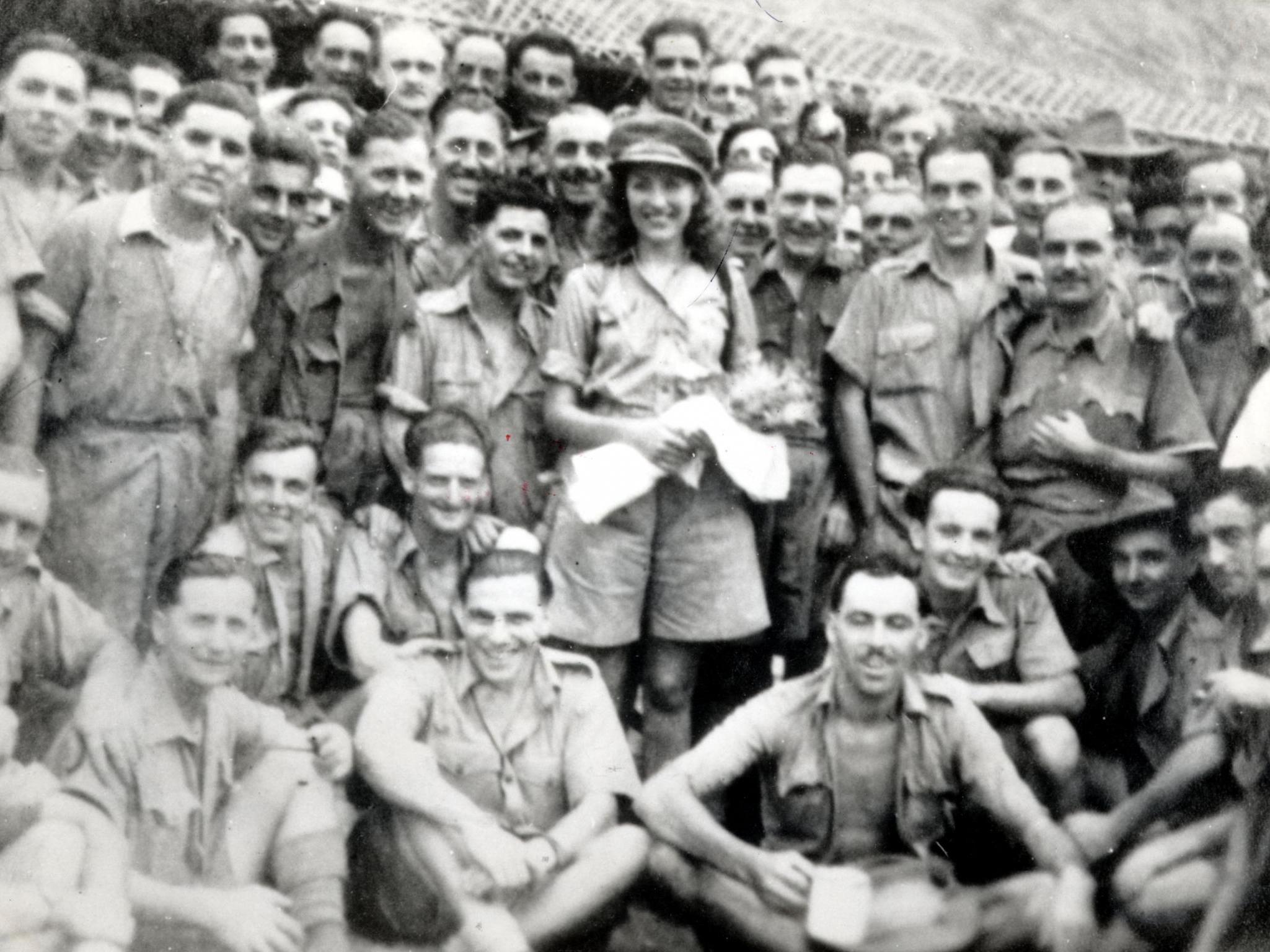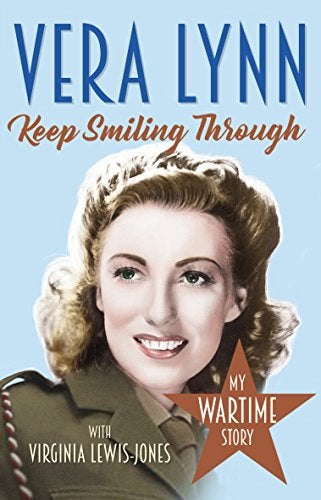Vera Lynn: The time she risked life and limb to provide comfort to those about to die
In her 2017 wartime memoir, the singer wrote about visiting troops in Burma
Your support helps us to tell the story
From reproductive rights to climate change to Big Tech, The Independent is on the ground when the story is developing. Whether it's investigating the financials of Elon Musk's pro-Trump PAC or producing our latest documentary, 'The A Word', which shines a light on the American women fighting for reproductive rights, we know how important it is to parse out the facts from the messaging.
At such a critical moment in US history, we need reporters on the ground. Your donation allows us to keep sending journalists to speak to both sides of the story.
The Independent is trusted by Americans across the entire political spectrum. And unlike many other quality news outlets, we choose not to lock Americans out of our reporting and analysis with paywalls. We believe quality journalism should be available to everyone, paid for by those who can afford it.
Your support makes all the difference.Vera Lynn, who has died at the age of 103, was widely known as the “Forces’ Sweetheart” for inspiring and giving hope to British soldiers during the Second World War.
Her death-defying tour of Burma earned her huge adoration, and is a time of her life she wrote about extensively in her memoir, Keep Smiling Through: My Wartime Burma Story.
In Burma, Allied troops endured over three years of brutal battle, often in extreme terrain during monsoon season, and under threat of disease. Led by Britain’s Indian Army, soldiers eventually reoccupied Burma in 1945.
To mark her 100th birthday in 2017, Lynn wrote about the three months between March and June 1944 that she spent travelling to and within Burma, singing to soldiers who were fighting to stop the Japanese advance on India.
She was just 27 at the time and set out from the Dorset coast with her pianist, Len Edwards, and a small piano, travelling 5,000 miles across the world in dangerous wartime conditions.
“I had never travelled at all apart from one touring visit to Holland,” she recalled. “And I had certainly never been in an aeroplane. But I wanted to make a difference.”
Some of the soldiers Lynn sang to had not seen their families for five years, and their extraordinary reaction to her singing has been revealed in letters written by Burma veterans themselves.
Lance Corporal Lindsay, who heard Lynn sing in Burma, said: “We went mad. Never have I yelled, bellowed, hollered or clapped so much before … we gave her an ovation, all right. She couldn’t sing for 10 minutes and she cried, too. Broken hand or not, I made it clap … I saw blokes crying with joy at seeing our own Vera.”
Frederick Weedman, meanwhile, wrote: “The men of the 4th Brigade were divided in their opinion of her voice – but not after that hot, steamy evening in 1944 in the Burmese jungle, when we stood in our hundreds and watched a tall, fair-haired girl walk on to a makeshift stage and stand by an old piano…
Enjoy unlimited access to 100 million ad-free songs and podcasts with Amazon Music
Sign up now for a 4 month free trial (3 months for non-Prime members)
Enjoy unlimited access to 100 million ad-free songs and podcasts with Amazon Music
Sign up now for a 4 month free trial (3 months for non-Prime members)
“She sang until her make-up was running in dark furrows down her cheeks, until her dress was wet with sweat, until her voice had become a croak. She was the only star we ever saw in the jungle.”

On the way to Burma, Lynn sang to 3,500 men in a marquee in Cairo during a sandstorm. “The wind was letting in great blasts of sand through the base and sides,” she wrote. “It got everywhere – in my ears, nose and throat – and I struggled even to see my audience, let alone make myself heard. But the boys seemed thrilled.”
Everywhere she stopped on her tour, Lynn insisted on visiting wounded soldiers in hospital. Sometimes she sang at their bedsides.
“Talking to the boys, giving them the chance to ask me questions and simply being there for them was just as important as the actual singing, if not more so,” she wrote.
“Because I had travelled around so much in Britain, from Sunderland to Brighton and from Cardiff to Crewe, I’d ask where someone was from and try to tell them about something I had seen in their home town. I let them know that things were all right – that we were holding our heads up and carrying on as usual.”
Recalling how emotional some of the soldiers were, she added: ”There were often tears, occasionally during the concerts, but more when I was alone with them.

“They saw me as a link with home and that aroused a lot of emotions – joy at being reminded of that connection, and sorrow because home seemed so far away.
“It was impossible for me to be impassive. I saw the happiness, hope and sadness move across their faces, and I felt those emotions, too.”
While Lynn was in Burma, the military situation was “highly volatile”, with many enemies present in the area. One soldier was quoted in newspapers at the time as saying: “Vera Lynn was very brave because there were pockets of Japanese all around us.”
Lynn arrived back in Britain on D-Day, 6 June 1944. “The skies over Europe were full of planes and I think it must have been something of a miracle we were allowed to fly in on that most crucial of days,” she wrote.
“I never really got over that period in my life. The journey to Burma is etched in my brain, full of all sorts of intense memories.
“I met some of the brave men who were fighting that forgotten war again at various reunions after the war and felt connected to them. I wasn’t just someone going to sing a few songs – I felt I was one of them. I still do.”

Join our commenting forum
Join thought-provoking conversations, follow other Independent readers and see their replies
Comments